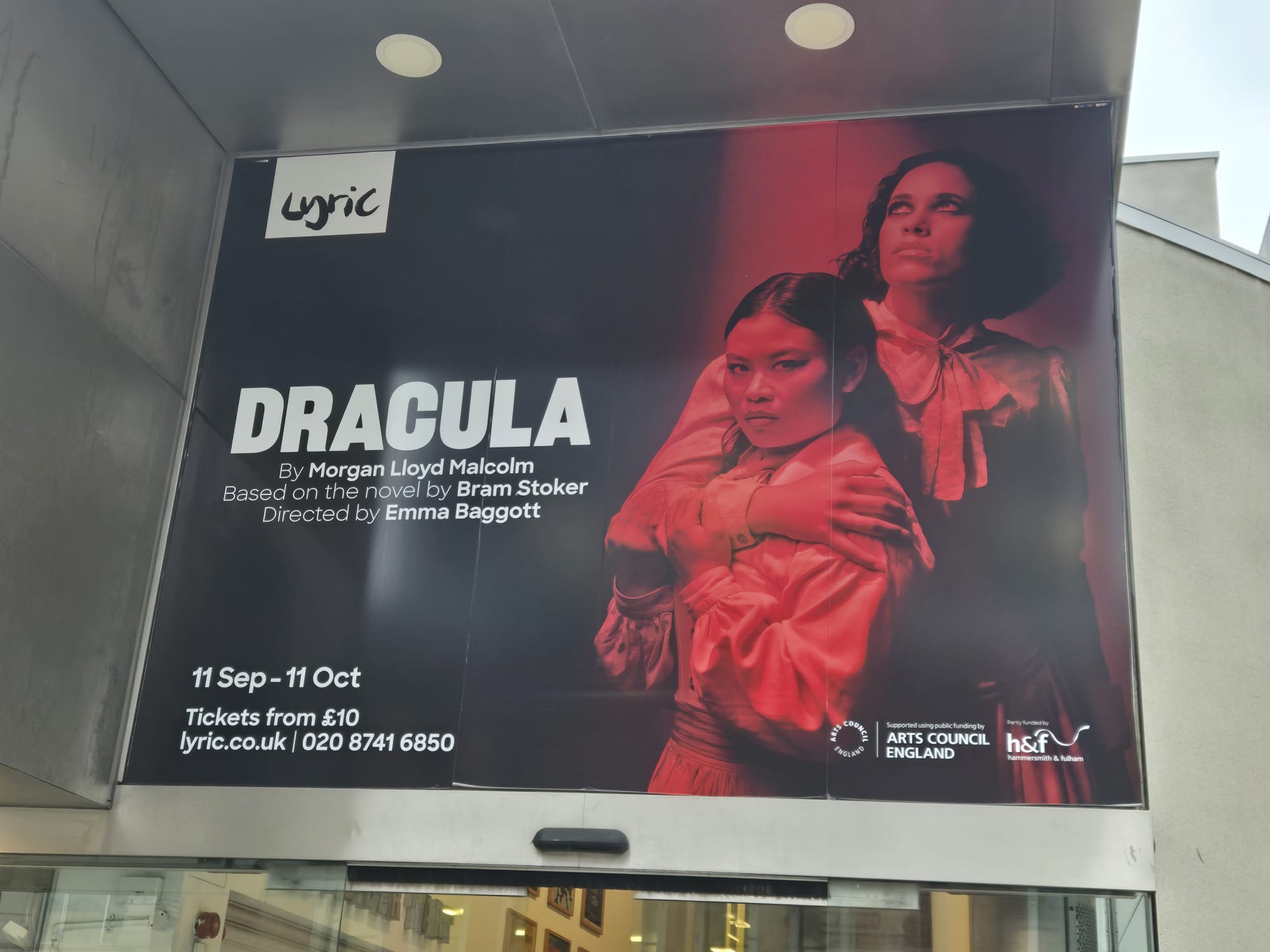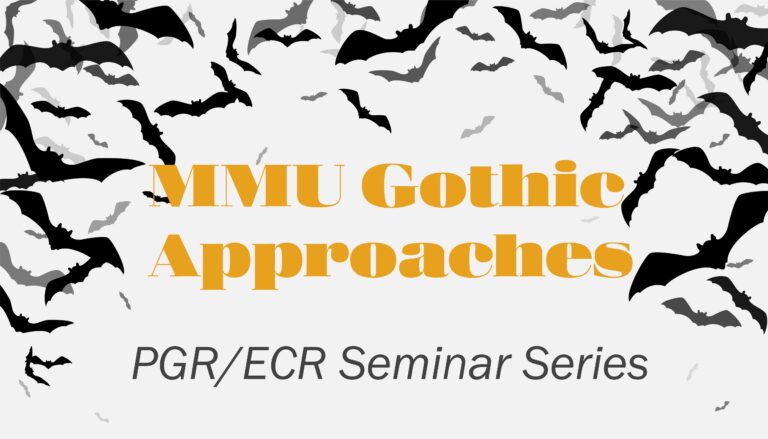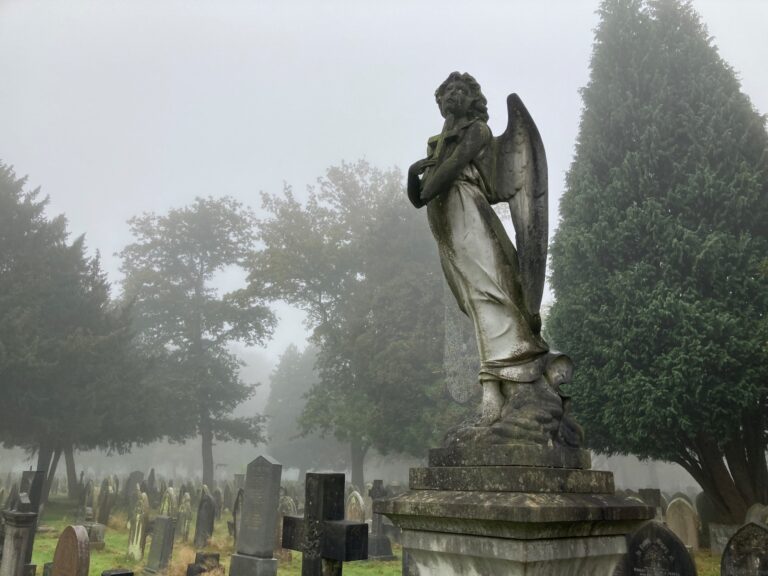This Autumn Bram Stoker’s Dracula came to the stage at London’s Lyric Hammersmith. In this major new adaptation of Stoker’s horror classic, Morgan Lloyd Malcolm (Emilia) and Director Emma Baggott (A Taste of Honey) retell the story from the perspective of Mina Harker, uncovering the female voices at the heart of the tale.
In this blog, the Gothic Centre’s resident vampire specialist, Dr Sorcha Ni Fhlainn, talks to Ellie Beal about her experience of being a consultant on the production.
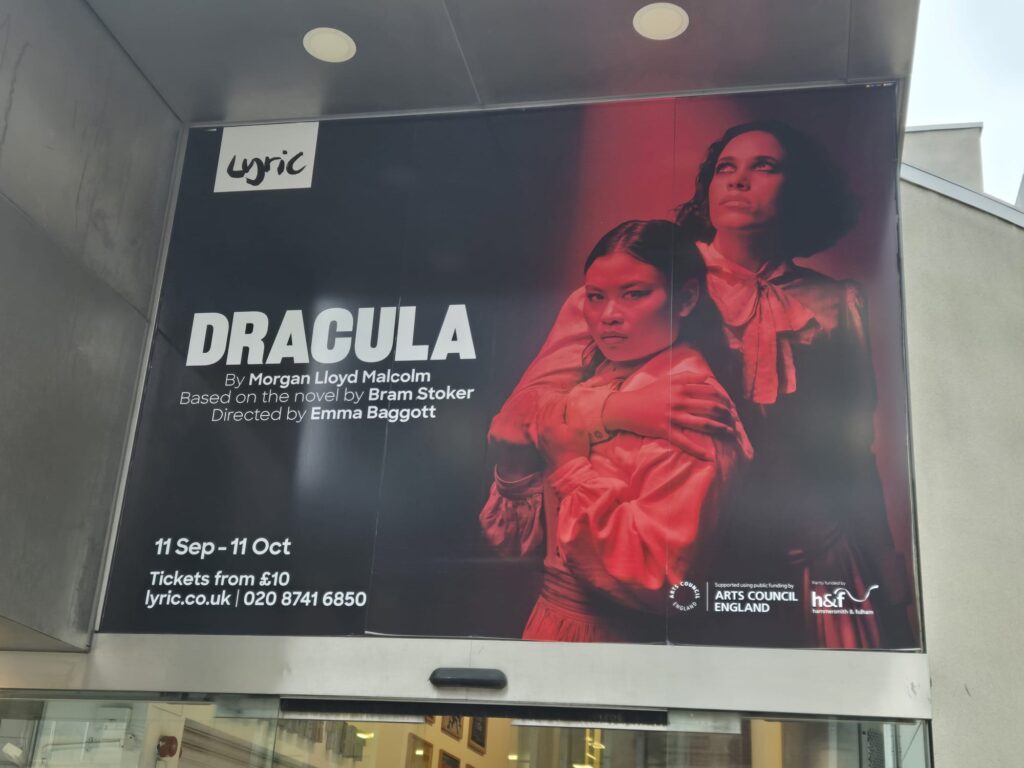
Production poster at the Lyric Theatre
Can you tell us about how this collaboration came about? Did you know any of the theatrical staff involved? Or how did they approach you and how did the relationship develop?
The producers of the show contacted me for my expertise on Dracula and vampire studies. Gráinne Flynn, the assistant director, informed me that she had found me on an episode of BBC Four’s The Forum discussing the history of Dracula and the multiplicity of subjectivity in the retellings of the tale. As this was an underpinning principle of this new version by Morgan Lloyd Malcolm, and my own research in vampire studies more widely, they were keen to have me consult on the production at the Lyric Theatre in London. It was really a dream-come-true kind of invitation!
What specific aspects of Dracula and vampires were you consulted on? And which areas of you research and expertise helped the most in developing the production?
Morgan Lloyd Malcolm’s script and the casting was already in place when I was asked to consult as a dramaturge on the work. For my part, I contextualised the many variations and modes of representing Stoker’s Dracula on stage and in film and popular culture to enable the cast and crew to feel out their interpretation amongst many varied approaches, and that their feelings in their portrayal were a consolidation of the many retellings that have come before. I was told by several cast members that it informed their choices in their character portrayals and that they were keen to contribute to that long legacy of Dracula retellings.
The production makes some interesting changes to the original story in its adaptation. For example, changing the perspective from Jonathan to Mina Harker. Were you aware they were planning to do this and were you asked anything specific in relation the changes they wanted to make?
I was informed that this was a feminist retelling of Dracula from Mina’s perspective and that Dracula was a shadow over the production rather than an embodied scene-stealing vampire! How apt! This was very exciting to me as the vampire can occupy the space of the gothic imaginary for the audience, and also enable Mina to tell the tale with a sense of agency and urgency. Our contemporary anxieties manifest from their intangible presence in our lives (online, in culture) rather than feel embodied or made solid through immortal flesh and bone. When I worked with the cast and creative team, I focused on how the shift away from relying on a ‘narrative truth’ had become central to retellings of the tale through subjective fragments – how Mina and Lucy had undergone huge modes of adaptation as characters (some versions have them as sisters, or merely write out Mina altogether in favour of Lucy, while other film adaptations collapse the Harker and Seward families together as one, ingrown example where the family home sits atop the asylum). What is crucial to me is that Mina is emboldened to tell the story in which she is active and has agency, which is the core philosophy of Morgan Lloyd Malcolm’s innovative script. That was very refreshing and exciting to witness.
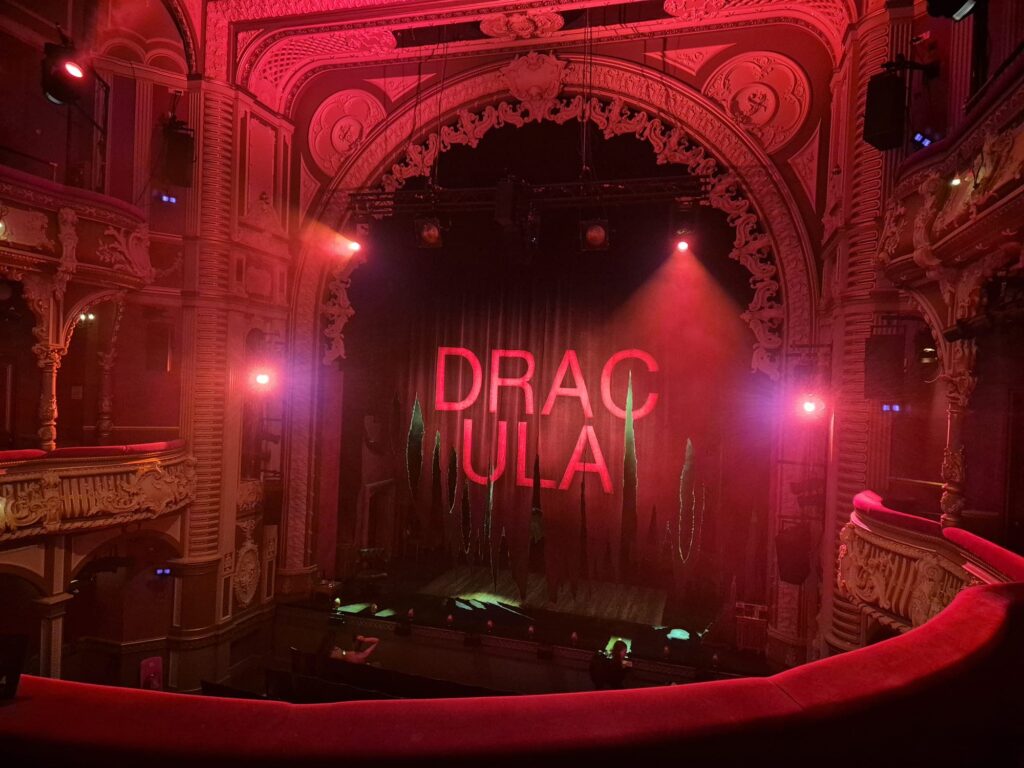
The premiere and stage design
What was the most interesting thing about your involvement in the process and what did you learn about adapting Dracula to live drama?
For me, it taught me that the process of reinterpreting such a well-known novel and play can be daunting for creative teams and actors, particularly when so many versions have become cemented in popular culture. This production side-stepped this by emphasising the female voice from the off-set, and transforming male power in the play into a force that binds — it is invisible and violent. As such, patriarchal control shines through in this version to remind us that what is not easily seen still has remarkable power that must be challenged! I also enjoyed affirming the freedom the actors wanted to explore as well-known characters, and reminding them of various other creative authors, filmmakers, and actors who have embraced the multitude of approaches. I wanted it to feel liberating for their work to join in this long tradition of Dracula on stage.
What was it like attending the premiere? What did you enjoy most?
I absolutely adored the premiere press night for Dracula. From seeing the full production and its beautiful staging, blood-red lighting, and clever special effects to experiencing its full feminist message on the audience that night, it was a joy to experience. My greatest pleasure was meeting the cast again following the performance, congratulating them on their tremendous work, and affirming how it was certainly an excellent part of Dracula’s history on stage and why it was needed now.
What parts of the play did you think were the most interesting, interpretatively? How do you think the production contributes to our understanding of Bram Stoker’s Dracula almost a century and half after its publication?
While we have had Dracula as a novel since 1897, it has the remarkable ability to feel fresh with each innovative interpretation. For me, the most interesting interpretation here was to reduce the Count on stage and redirect his malevolence outward into wider societal issues such as patriarchal violence and control over women’s narratives, voices, and bodies. Dracula is more than merely a man, or a vampire king – he is a social ill that spreads outward with invisible malevolence. I found that it spoke to a sense of feminist belonging, urging the audience to augment the power of women in the face of societal horror. As such, it was about removing the weight of Dracula’s established history in order to remind ourselves that women are the heroes of the piece – they truly understand the horror, heroism and love it takes to survive. For that, I can only thank the cast, crew and creative team at the Lyric Theatre for staging such a powerful message.
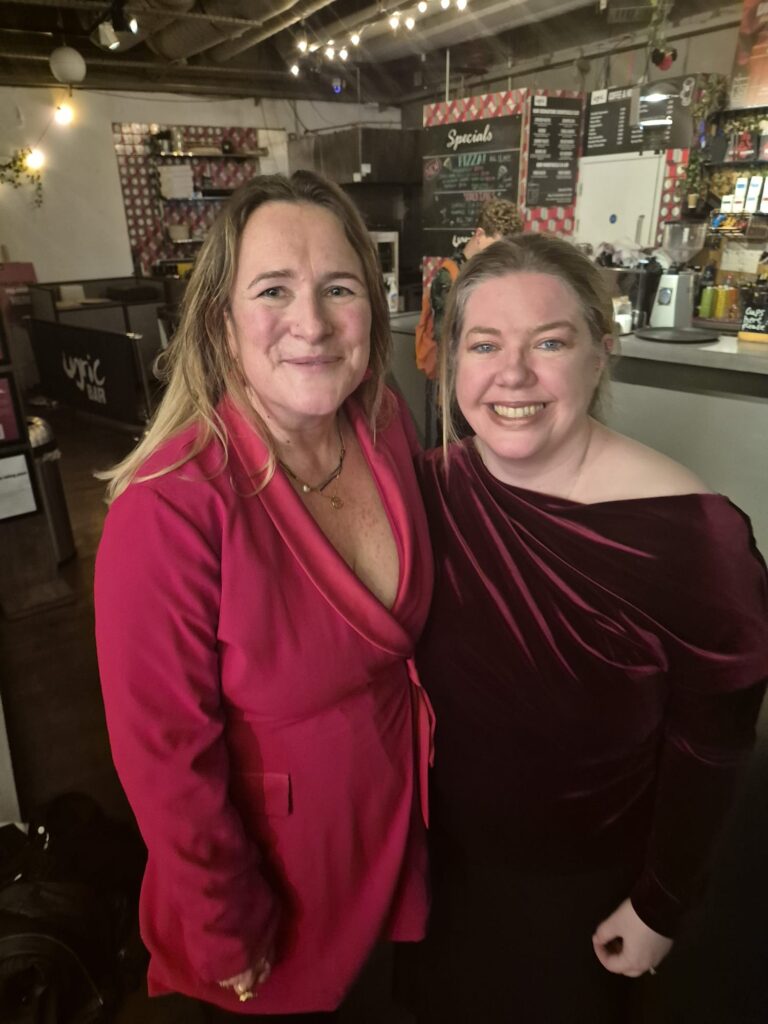
Sorcha with Playwright Morgan Lloyd Malcolm

